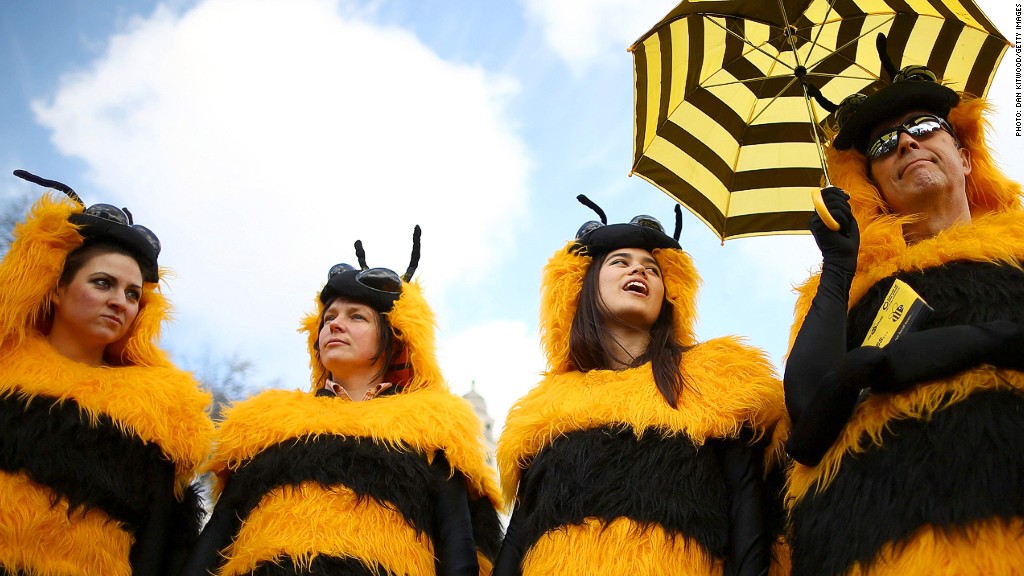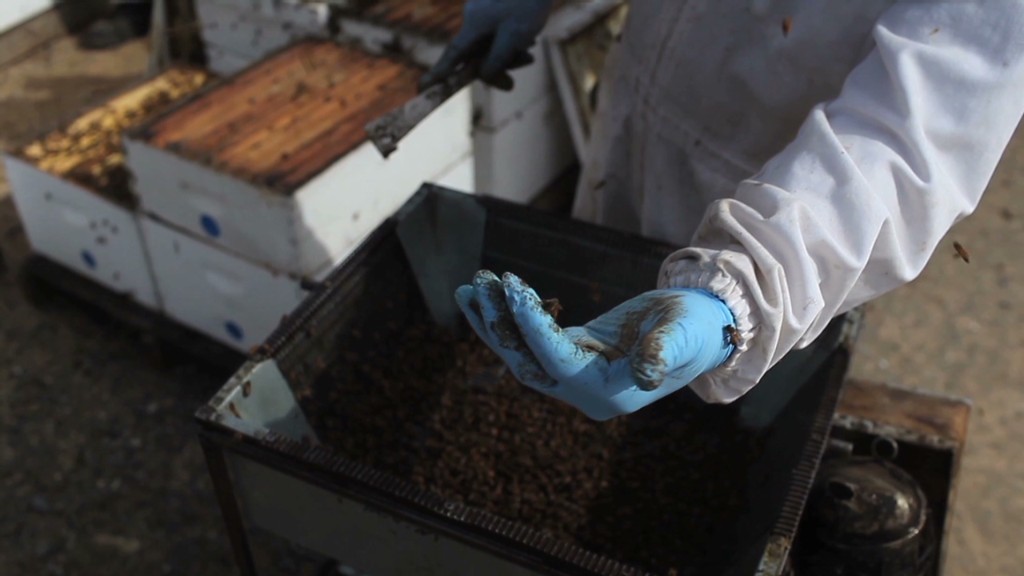
Europe is banning certain pesticides in a bid to save the continent's bee population.
The European Commission will roll out the ban across all 27 member states at the end of the year, after scientific studies showed that three kinds of pesticides -- clothianidin, imidacloprid and thiametoxam -- damaged the bee population.
The EU's health and consumer commissioner, Tonio Borg, said he would do everything in his power to ensure the bee population was protected, adding that bees are "vital to our ecosystem and contribute over 22 billion euros annually to European agriculture."
People dressed in bee costumes had been swarming around European capitals ahead of the decision, trying to drum up support for the restrictions.
"This decision is a significant victory for common sense and our beleaguered bee populations," said Andrew Pendleton, a campaigner at Friends of the Earth. "Restricting the use of these pesticides could be an historic milestone on the road to recovery for these crucial pollinators."
Related: Climate change will cause turbulence for airlines and passengers
Syngenta (SYT) and Bayer (BAYRY), who produce these pesticides, had been lobbying against the ban.
Syngenta's chief operating officer, John Atkin, said the ban was based on poor science and ignored evidence that the pesticides do not damage bees' health.
"Instead of banning these products, the commission should now take the opportunity to address the real reasons for bee health decline: Disease, viruses and loss of habitat and nutrition," he said in a statement.

The scientific community is still debating whether laboratory-based studies accurately demonstrate that pesticides harm the bee population in the wild. But even though some maintain that the science is inconclusive, the European Commission said it wanted to err on the side of safety.
"The science is sufficiently strong to make it worth taking certain measures now. The costs in the short term are worth it given the potential costs over the long term," said European Commission spokesman Roger Waite.

